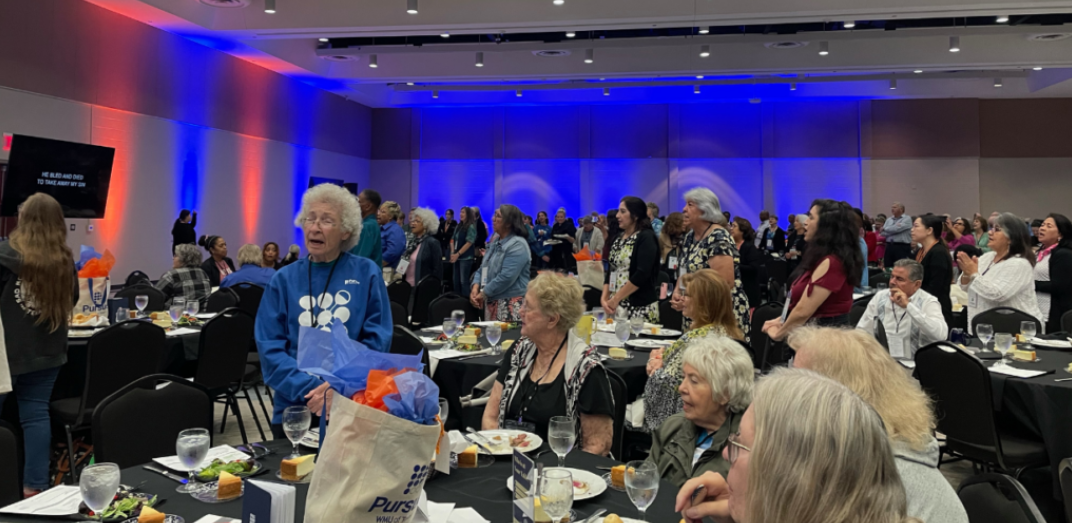Two of the nine recommendations proposed to messengers attending the Southern Baptist Convention Annual Meeting in Nashville this morning (June 15) failed, one of which made the final of the nine recommendations “moot.”
Recommendation 7 would have amended the SBC business and financial plan to allow the Executive Committee more oversight in order to “strengthen the financial accountability” of SBC entities. The amended plan also would have allowed the EC the power to escrow Cooperative Program funds from any entity not complying with the 10-point checklist.
Messengers responded with a resounding no, however. A packed meeting hall fell quiet with only a small number of the more than 15,000 messengers currently registered voting in favor of the plan.
An overwhelming number voted against the recommendation and cheered following SBC President J.D. Greear’s announcement “the negatives have it.”
While four messengers stepped to the microphone to speak against the motion and another attempted to amend it without success, it was Southeastern Seminary president Danny Akin who garnered applause and even whistles.
‘Problematic to seminaries’
“I am chair of the council of seminary presidents and speak on behalf of all six of us opposing this recommendation,” said Akin, who also spoke as a messenger from his church in Wake Forest, North Carolina. “This would jeopardize our standing with our accrediting agencies … because they already wonder about oversight (related to Cooperative Program funds gifted to the seminary). They ask, how does this keep outside interference? And we always say the money comes from our churches who hold us accountable through our trustee system.”
Two messengers also noted a concern about providing the EC additional authority when it is entering a time of investigation about allegations of mishandling of sexual abuse accusations within the denomination and “other perceived overreaches.”
Vance Pitman, pastor and messenger from Hope Church, Las Vegas, added, “This proposal would be an unprecedented expansion of the EC’s powers and would put itself between the local churches and the entities we are trying to support with the CP. There are so many questions … and it doesn’t have to be done this year. Let’s wait and allow everything to come out before accepting a recommendation like this.”
EC member Robyn Hari of Tennessee, who serves as chair of the committee on convention finances and stewardship development, reminded messengers that the recommendation was in response to previous messengers’ request “to have some method to make sure all things outlined in the business and financial plan have been met and addressed.”
“The spirit of the process was intended to be one of cooperation,” she said. “We engaged with entity CFOs, presidents and legal counsel. The goal was to balance the requests for more transparency and accountability while acknowledging the autonomy of the entities and that they have board of trustees for oversight of those entities.
But “we want to hear from the convention and the messengers,” she added.
Lifeway ministry assignment change rejected
Also failing to secure passage was recommendation 8 for Lifeway’s ministry assignment to amend its stated mission and all 10 current ministry assignments.
Of the 10,317 messengers voting, 4,448 voted in favor while 5,850 voted against the motion (19 votes were disallowed).
With messengers voting down the Lifeway ministry assignment change, Recommendation 9 “is moot” because it focuses on the North American Mission Board absorbing the college student ministry assignment from Lifeway, EC chairman Rolland Slade explained.
“We will not stop sharing the gospel with college students across this country,” he said, but Lifeway’s Ben Mandrell and NAMB’s Kevin Ezell were asked to work together to determine a plan to be presented to messengers at a future annual meeting.








